By Stuart Mitchner
Let the devil play it!
—Franz Schubert (1797-1828)
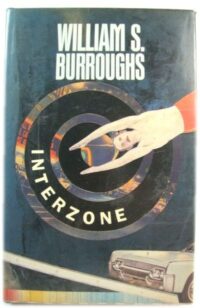 The finale to Schubert’s Wanderer Fantasy, based on his song “Der Wanderer,” has been described as “technically transcendental” with a “thunderous” conclusion. It was also infamously difficult to play, so deviously demanding that Schubert himself reportedly threw up his hands during a recital and yelled “Let the devil play it!”
The finale to Schubert’s Wanderer Fantasy, based on his song “Der Wanderer,” has been described as “technically transcendental” with a “thunderous” conclusion. It was also infamously difficult to play, so deviously demanding that Schubert himself reportedly threw up his hands during a recital and yelled “Let the devil play it!”
I’m beginning this article on Schubert’s birthday, Friday January 31, looking ahead to the Wednesday, February 5 birthday of William Burroughs (1914-1997), who ventured into “Let the devil play it” territory when he linked the killing of his common-law wife Joan Vollmer to “the invader, the Ugly Spirit,” which “maneuvered me into a lifelong struggle, in which I have had no choice except to write my way out.” According to his introduction to Queer (Penguin 1985), Vollmer’s death during the drunken William Tell fiasco of September 6, 1951, opened the way to his breakthrough work Naked Lunch — if you believe him when he says he’d never have become a writer “but for Joan’s death.”
In a January 1965 Paris Review conversation reprinted in Writers at Work: The Third Series (Viking Compass), Burroughs frames the killing in the context of guns and gun violence in Mexico City, recalling it, as if offhandedly, “And I had that terrible accident with Joan Vollmer, my wife. I had a revolver that I was planning to sell to a friend. I was checking it over and it went off — killed her. A rumor started that I was trying to shoot a glass of champagne from her head, William Tell style. Absurd and false.”
He can’t say “I killed her” or even “it killed her.” Just “killed her.” The suggestion that “it just went off” is coming from a lifelong gun owner; witnesses at the scene not only agree about the William Tell scenario but remember Joan jesting just before the shot was fired: “I’m turning my head; you know I can’t stand the sight of blood.” more


 Bob Dylan put President McKinley back in the national consciousness a few years ago in his song “Key West (Philosopher Pirate),” taking the first line from Charlie McCoy’s “White House Blues,” except in McCoy’s version the second line was “Doc said to McKinley, ‘I can’t find that ball,’ “ meaning the second of two bullets fired at close range into the president’s abdomen on September 6, 1901. It happened at the Temple of Music on the grounds of the Pan-American Exposition in Buffalo. McKinley died on September 14, 1901, a hundred years to the week of the September 11, 2001 terrorist attack on the World Trade Center.
Bob Dylan put President McKinley back in the national consciousness a few years ago in his song “Key West (Philosopher Pirate),” taking the first line from Charlie McCoy’s “White House Blues,” except in McCoy’s version the second line was “Doc said to McKinley, ‘I can’t find that ball,’ “ meaning the second of two bullets fired at close range into the president’s abdomen on September 6, 1901. It happened at the Temple of Music on the grounds of the Pan-American Exposition in Buffalo. McKinley died on September 14, 1901, a hundred years to the week of the September 11, 2001 terrorist attack on the World Trade Center.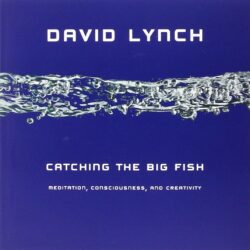 If David Lynch were still delivering daily weather reports on his YouTube channel, and if he’d lived to see Inauguration Day, his January 20 forecast would have ended with his usual cheery, heartfelt “golden sunshine and blue skies all the way” closing line, topped off with a smile and a vigorous salute, regardless of the actual weather in L.A. or D.C. Unfortunately, actual earthly weather in the form of the Santa Ana winds driving the wildfires devastating his city forced the mandatory evacuation of Lynch’s home on the night of Wednesday, January 8. The timing and the circumstances were, as some online bloggers have noted, “Lynchian.” Not only was the director of Mulholland Drive living adjacent to the street that gave his most celebrated film its title, he was homebound, seriously ill with emphysema, and in need of “supplemental oxygen for most activities.” Even though the evacuation order was rescinded the next morning, the damage had apparently been done. Less than a week later, Lynch’s family announced his January 15 death.
If David Lynch were still delivering daily weather reports on his YouTube channel, and if he’d lived to see Inauguration Day, his January 20 forecast would have ended with his usual cheery, heartfelt “golden sunshine and blue skies all the way” closing line, topped off with a smile and a vigorous salute, regardless of the actual weather in L.A. or D.C. Unfortunately, actual earthly weather in the form of the Santa Ana winds driving the wildfires devastating his city forced the mandatory evacuation of Lynch’s home on the night of Wednesday, January 8. The timing and the circumstances were, as some online bloggers have noted, “Lynchian.” Not only was the director of Mulholland Drive living adjacent to the street that gave his most celebrated film its title, he was homebound, seriously ill with emphysema, and in need of “supplemental oxygen for most activities.” Even though the evacuation order was rescinded the next morning, the damage had apparently been done. Less than a week later, Lynch’s family announced his January 15 death.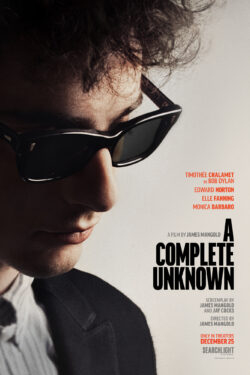 Blowing through the buttons of our coats / Blowing through the letters that we wrote / Idiot wind / Blowing through the dust upon our shelves….” The next lines, and the last, of Bob Dylan’s song are “We’re idiots, babe / It’s a wonder we can even feed ourselves.”
Blowing through the buttons of our coats / Blowing through the letters that we wrote / Idiot wind / Blowing through the dust upon our shelves….” The next lines, and the last, of Bob Dylan’s song are “We’re idiots, babe / It’s a wonder we can even feed ourselves.”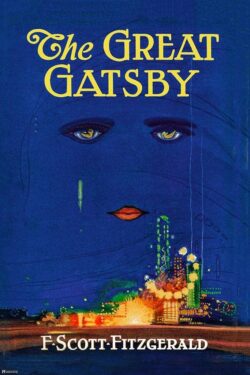 I woke up from a nap five minutes before midnight, turned on the TV, and there was Times Square packed with Happy 2025-top-hatted, rainwear-cloaked revelers under a delirium of color that swarmed into futuristic formations every time I blinked my eyes. At first the signs were meaningless, nameless, wordless, New Year’s Eve on Mars, like a vision of the place I loved as a 14-year-old seen through the eyes of old Rip Van Winkle emerging from a showing of A Star Is Born on a rainy night in 1954. What does it mean, all this dazzling stuff? Where’s a familiar face? Where’s Judy Garland? Where’s any legible meaningful remnant of lost New York? Then, wonder of wonders, a floodlit sign for The Great Gatsby comes into view on the first day of the novel’s 100th year, F. Scott Fitzgerald’s masterpiece is in lights, and Broadway makes 20th-century sense again….
I woke up from a nap five minutes before midnight, turned on the TV, and there was Times Square packed with Happy 2025-top-hatted, rainwear-cloaked revelers under a delirium of color that swarmed into futuristic formations every time I blinked my eyes. At first the signs were meaningless, nameless, wordless, New Year’s Eve on Mars, like a vision of the place I loved as a 14-year-old seen through the eyes of old Rip Van Winkle emerging from a showing of A Star Is Born on a rainy night in 1954. What does it mean, all this dazzling stuff? Where’s a familiar face? Where’s Judy Garland? Where’s any legible meaningful remnant of lost New York? Then, wonder of wonders, a floodlit sign for The Great Gatsby comes into view on the first day of the novel’s 100th year, F. Scott Fitzgerald’s masterpiece is in lights, and Broadway makes 20th-century sense again….
 My preferred Santa of the moment is the one trudging up the Union Square subway stairs on the cover of the December 16 New Yorker, a heavy red bag slung over his shoulder, one hand on the railing, snow falling. I like the noirish urban darkness of Eric Drooker’s image, the way the Con Ed building is framed, the fading portrait of a beloved city against a blank sky. I also like the touch of mortal menace. Will Santa make it to his next stop before he’s mugged or run down by a drunken driver?
My preferred Santa of the moment is the one trudging up the Union Square subway stairs on the cover of the December 16 New Yorker, a heavy red bag slung over his shoulder, one hand on the railing, snow falling. I like the noirish urban darkness of Eric Drooker’s image, the way the Con Ed building is framed, the fading portrait of a beloved city against a blank sky. I also like the touch of mortal menace. Will Santa make it to his next stop before he’s mugged or run down by a drunken driver? According to A Book of Days for the Literary Year, the week of December 15 begins with the publication of Emma, a day before Jane Austen’s 40th birthday in 1815. Emma Woodhouse’s comment about a divided understanding of the world’s pleasures, spoken soon after she herself disastrously misunderstands a courtship charade, has me thinking about Authors, the card game that my parents and I played when I was a boy. The fact that Jane Austen had been overlooked by the creators of the game (the only female being Louisa May Alcott) naturally didn’t occur to me, although when my wife and I played Authors with our son decades later, her absence was front and center. How could they leave her out, a question that had serious resonance on the Christmas morning I gave my wife illustrated editions of Persuasion and Mansfield Park.
According to A Book of Days for the Literary Year, the week of December 15 begins with the publication of Emma, a day before Jane Austen’s 40th birthday in 1815. Emma Woodhouse’s comment about a divided understanding of the world’s pleasures, spoken soon after she herself disastrously misunderstands a courtship charade, has me thinking about Authors, the card game that my parents and I played when I was a boy. The fact that Jane Austen had been overlooked by the creators of the game (the only female being Louisa May Alcott) naturally didn’t occur to me, although when my wife and I played Authors with our son decades later, her absence was front and center. How could they leave her out, a question that had serious resonance on the Christmas morning I gave my wife illustrated editions of Persuasion and Mansfield Park.  In the opening sentence of Franz Kafka’s unfinished novel Amerika (New Directions), the Statue of Liberty is holding aloft a sword instead of a torch. There are disputes online about whether this was unintended or intentional. Not to worry. With a writer as infinitely suggestive as Kafka, errors can have prophetic consequences, and since he has, in effect, arrived in post-election America for a centenary exhibit at the Morgan Library & Museum, some interesting connections are already in play, notably Barry Blitt’s New Yorker cover depicting a very nervous, verge-of-vertigo Lady Liberty walking a tightrope.
In the opening sentence of Franz Kafka’s unfinished novel Amerika (New Directions), the Statue of Liberty is holding aloft a sword instead of a torch. There are disputes online about whether this was unintended or intentional. Not to worry. With a writer as infinitely suggestive as Kafka, errors can have prophetic consequences, and since he has, in effect, arrived in post-election America for a centenary exhibit at the Morgan Library & Museum, some interesting connections are already in play, notably Barry Blitt’s New Yorker cover depicting a very nervous, verge-of-vertigo Lady Liberty walking a tightrope. The epigraph comes by way of the first Arts page in Monday’s New York Times. At least once or twice every year, the Newspaper of Record throws out a line that hooks me. Picture a Dr. Seuss-style fisherman, perhaps the Cat in the Hat, dandling a brain-rot lure as a Dr. Seuss fish leaps out of the water, grinning idiotically while I’m thinking “This is not how I meant to begin a December 4 column on Franz Kafka; no, this is not what I meant to do, not at all, not at all.”
The epigraph comes by way of the first Arts page in Monday’s New York Times. At least once or twice every year, the Newspaper of Record throws out a line that hooks me. Picture a Dr. Seuss-style fisherman, perhaps the Cat in the Hat, dandling a brain-rot lure as a Dr. Seuss fish leaps out of the water, grinning idiotically while I’m thinking “This is not how I meant to begin a December 4 column on Franz Kafka; no, this is not what I meant to do, not at all, not at all.” The day after I wrote an article on Elon Musk referencing his first and foremost “life lesson,” that “empathy is not an asset,” the New York Times came up with a front page that instantly connected with my post-election state of mind. Lead head: “Chop First and Fix Later: How Musk Tames Costs.” The story directly beneath: “Trump Stands by Defense Pick Who Denies Sex Assault Claim.” Directly under that: “Robots Still Lack Human Touch in Warehouses.” And just below came two smaller heads previewing stories in the Business section: “Social Media Veers Right” and “Spirit Files for Bankruptcy.”
The day after I wrote an article on Elon Musk referencing his first and foremost “life lesson,” that “empathy is not an asset,” the New York Times came up with a front page that instantly connected with my post-election state of mind. Lead head: “Chop First and Fix Later: How Musk Tames Costs.” The story directly beneath: “Trump Stands by Defense Pick Who Denies Sex Assault Claim.” Directly under that: “Robots Still Lack Human Touch in Warehouses.” And just below came two smaller heads previewing stories in the Business section: “Social Media Veers Right” and “Spirit Files for Bankruptcy.” T
T On Election Day, I began reading Walter Isaacson’s biography of Elon Musk (Simon & Schuster 2023) along with The Rime of the Ancient Mariner, which Samuel Taylor Coleridge first conceived during a walk with William Wordsworth on November 13, 1797.
On Election Day, I began reading Walter Isaacson’s biography of Elon Musk (Simon & Schuster 2023) along with The Rime of the Ancient Mariner, which Samuel Taylor Coleridge first conceived during a walk with William Wordsworth on November 13, 1797.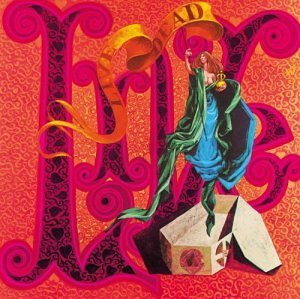 W
W Denizens of YouTube’s cosmic jukebox can celebrate Ezra Pound’s birthday by listening to him deliver Part I of his landmark poem Hugh Selwyn Mauberly (Life and Contacts). The reading was reportedly recorded in 1959 when he lived in Castle Brunnenburg in the Italian Tyrol, some 39 years after the poem was first published and 65 years before the 2024 election. With a few taps on the keyboard, you can go eye to eye with the old poet, who describes himself as E.P. “born in a half-savage country, out of date” — actually Hailey, Idaho Territory, U.S.A., October 30, 1885.
Denizens of YouTube’s cosmic jukebox can celebrate Ezra Pound’s birthday by listening to him deliver Part I of his landmark poem Hugh Selwyn Mauberly (Life and Contacts). The reading was reportedly recorded in 1959 when he lived in Castle Brunnenburg in the Italian Tyrol, some 39 years after the poem was first published and 65 years before the 2024 election. With a few taps on the keyboard, you can go eye to eye with the old poet, who describes himself as E.P. “born in a half-savage country, out of date” — actually Hailey, Idaho Territory, U.S.A., October 30, 1885. 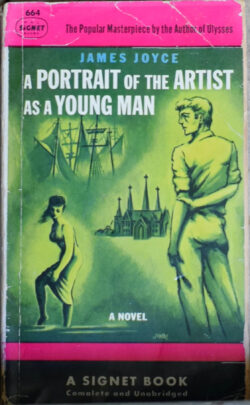 In the final chapter of James Joyce’s Portrait of the Artist As a Young Man (1916), Stephen Dedalus tells two of his fellow students what happened to a girl who got into a hansom cab “a few days ago” in London. “She was on her way to meet her mother whom she had not seen for many years. At the corner of a street the shaft of a lorry shivered the window of the hansom in the shape of a star. A long fine needle of the shivered glass pierced her heart. She died on the instant.”
In the final chapter of James Joyce’s Portrait of the Artist As a Young Man (1916), Stephen Dedalus tells two of his fellow students what happened to a girl who got into a hansom cab “a few days ago” in London. “She was on her way to meet her mother whom she had not seen for many years. At the corner of a street the shaft of a lorry shivered the window of the hansom in the shape of a star. A long fine needle of the shivered glass pierced her heart. She died on the instant.”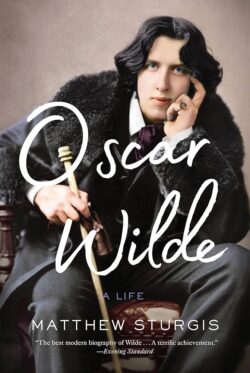 The October 16, 1847 publication of Charlotte Brontë’s novel Jane Eyre is listed among Wikipedia’s Notable Events,1691-1900, along with the execution of Marie Antoinette (1793) and John Brown’s raid on Harper’s Ferry (1859). As the 19th century continued “happening, over and over again,” Oscar Fingal O’Fflahertie Wills Wilde was born in Dublin on October 16, 1854 and Eugene Gladstone O’Neill surfaced in a New York City hotel on October 16, 1888.
The October 16, 1847 publication of Charlotte Brontë’s novel Jane Eyre is listed among Wikipedia’s Notable Events,1691-1900, along with the execution of Marie Antoinette (1793) and John Brown’s raid on Harper’s Ferry (1859). As the 19th century continued “happening, over and over again,” Oscar Fingal O’Fflahertie Wills Wilde was born in Dublin on October 16, 1854 and Eugene Gladstone O’Neill surfaced in a New York City hotel on October 16, 1888.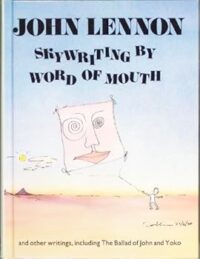 Never lead against a hitter unless you can outhit him. Crowd a boxer, and take everything he has, to get inside. Duck a swing. Block a hook. And counter a jab with everything you own.
Never lead against a hitter unless you can outhit him. Crowd a boxer, and take everything he has, to get inside. Duck a swing. Block a hook. And counter a jab with everything you own.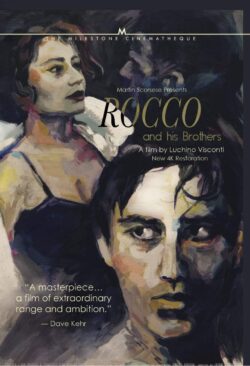 I’ve just read Wallace Stevens’s “Thirteen Ways of Looking at a Blackbird,” today being his 145th birthday. Why that particular poem now? Probably because it’s an infectious idea that inspires impersonation. And why 13? Why not 9 or 7? Or 10 to match the number of his birthday month?
I’ve just read Wallace Stevens’s “Thirteen Ways of Looking at a Blackbird,” today being his 145th birthday. Why that particular poem now? Probably because it’s an infectious idea that inspires impersonation. And why 13? Why not 9 or 7? Or 10 to match the number of his birthday month?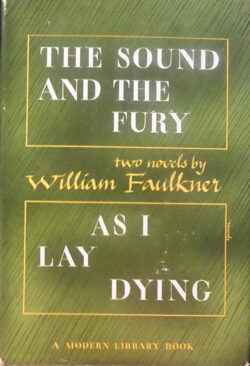 Looking ahead to William Faulkner’s September 25th birthday, I reread the 1956 Paris Review interview in which he says The Sound and the Fury (1929) is the novel that caused him “the most grief and anguish,” comparing himself to the mother who “loves the child who became the thief or murderer more than the one who became the priest.”
Looking ahead to William Faulkner’s September 25th birthday, I reread the 1956 Paris Review interview in which he says The Sound and the Fury (1929) is the novel that caused him “the most grief and anguish,” comparing himself to the mother who “loves the child who became the thief or murderer more than the one who became the priest.”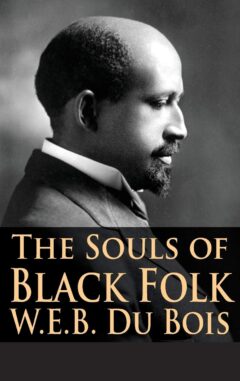 The feature attraction at this weekend’s Friends and Foundation Princeton Public Library Book Sale is a collection of rare African American literature donated by Rutgers Professor Donald Gibson, who died at 90 on January 3. During his four decades as a teacher, Gibson helped establish the study of Black literature as a legitimate university course. Among his numerous books, essays, and lectures is the introduction to The Souls of Black Folk by W.E.B. Du Bois, which is available among the titles in the library’s non-fiction book group.
The feature attraction at this weekend’s Friends and Foundation Princeton Public Library Book Sale is a collection of rare African American literature donated by Rutgers Professor Donald Gibson, who died at 90 on January 3. During his four decades as a teacher, Gibson helped establish the study of Black literature as a legitimate university course. Among his numerous books, essays, and lectures is the introduction to The Souls of Black Folk by W.E.B. Du Bois, which is available among the titles in the library’s non-fiction book group.
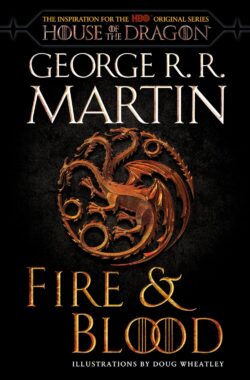 However much my wife and I may disagree about other things, we’ve always been in accord about movies, whether it’s the late Alain Delon’s Once a Thief or HBO’s House of the Dragon.
However much my wife and I may disagree about other things, we’ve always been in accord about movies, whether it’s the late Alain Delon’s Once a Thief or HBO’s House of the Dragon.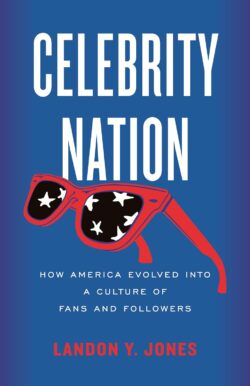 Midway through the last week of August, in the aftermath of a Democratic National Convention about saving America, baseball fans are looking ahead to the do-or-die last month of the regular season, while the jazz world celebrates Lester Young, born August 27, 1909, and Charlie Parker, born August 29, 1920.
Midway through the last week of August, in the aftermath of a Democratic National Convention about saving America, baseball fans are looking ahead to the do-or-die last month of the regular season, while the jazz world celebrates Lester Young, born August 27, 1909, and Charlie Parker, born August 29, 1920. The first of many things I didn’t know about tenor saxophonist Stan Getz is that I was going to be writing about him today. In February 1954 when he was arrested for holding up a Seattle drugstore, I was shocked. I was 15, just getting into jazz, and I admired Getz for his moody, lyrical playing with guitarist Johnny Smith on “Moonlight in Vermont” and for his passionate solos with the Count Basie rhythm section and an all-star cast in Jam Session 3. Eventually I came to know him best for his work on Diz and Getz, with Dizzy Gillespie, a session that had been recorded in Los Angeles three months before his arrest.
The first of many things I didn’t know about tenor saxophonist Stan Getz is that I was going to be writing about him today. In February 1954 when he was arrested for holding up a Seattle drugstore, I was shocked. I was 15, just getting into jazz, and I admired Getz for his moody, lyrical playing with guitarist Johnny Smith on “Moonlight in Vermont” and for his passionate solos with the Count Basie rhythm section and an all-star cast in Jam Session 3. Eventually I came to know him best for his work on Diz and Getz, with Dizzy Gillespie, a session that had been recorded in Los Angeles three months before his arrest.